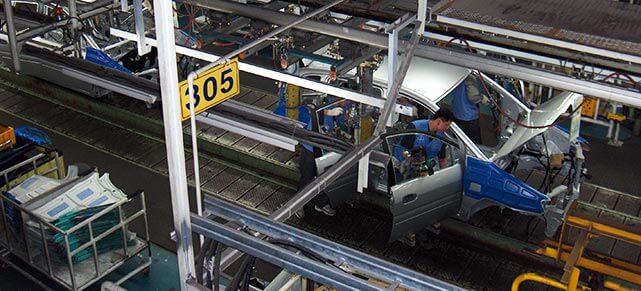Unclaimed deposits for a good cause
In 2012, Australia had about $675 million in dormant bank accounts, shares and insurance policies just waiting for someone to claim. Now, financial system authorities are poised to recommend that these funds be channeled into a trust that would fund social impact bonds – a new financial instrument where financial returns are linked to social benefits. The Sydney Morning Herald reported last week that social impact investment is expected to grow by $32 billion in Australia within the next decade. U.K. Prime Minister David Cameron also welcomes social impact investing as a way to relieve governments of the full cost of providing social services, the Herald reported.
Pipeline hearings a “farce,” says former hydro exec
Marc Eliesen, former head of BC Hydro, pulled out of Canada’s federal hearings on the proposed Kinder Morgan pipeline project last week, calling the public hearing process “a farce.” In a letter to the National Energy Board, he explained that his continued involvement in the process would be a “waste of time and effort, and represents a disservice to the public interest because it endorses a fraudulent process.” Spencer Chandra-Herbert, environment critic for the B.C. New Democratic Party, has called for an environmental review led by the B.C. government to hold Kinder Morgan accountable “and not let them get away without answering tough questions about their ability to respond to oil spills,” CBC News reported yesterday.
Stranded assets
The Carbon Tracker Initiative, a team of financial experts analyzing climate risk in financial markets, released a report today showing that companies could waste up to $271 billion on oil sands projects that require oil prices to be more than $95 per barrel in order to generate a decent return. The report warns investors to challenge the economic logic of these projects, citing volatile and weakening oil prices. “The economics of the oil sands are getting more challenging. We expect to see more stranded assets, as expensive projects get shelved with no viable route to the market,” said James Leaton, research director of Carbon Tracker in a statement.
Car companies pay for mistakes
Hyundai and Kia, two South Korean carmakers, will pay the largest ever penalty for a violation of the Clean Air Act, U.S. regulators announced yesterday. The $100 million (U.S.) fine will settle accusations that the companies exaggerated the fuel efficiency of 1.2 million vehicles by up to six miles per gallon. This translates to about 4.75 million metric tons of greenhouse gas emissions that were not reported to the U.S. Environmental Protection Agency, the BBC reported today. In addition to the fine, the companies will have to give up their emissions credits, worth about $200 million. They will also have to spend about $50 million to prevent future violations, bringing their total costs to $350 million.
Canada’s new “ecofiscal” commission launches
Today marks the launch of Canada’s Ecofiscal Commission, which brings top economists together from across the country to help decision makers come up with new policies that will align municipal, provincial and national economic goals with environmental targets. The commission’s inaugural report uses international examples to show how Canada can “modernize its fiscal system” to enhance innovation and investment. The message behind the initiative is that environmental policies do not have to be expensive to work; rather, eco-fiscal policies will allow market-driven innovations to create the best solutions at the lowest cost. “Given the twin challenges we face today – economic prosperity and environmental sustainability – we see this as one of the greatest policy opportunities of our generation,” said Chris Ragan, chair of the commission and professor of economics at McGill University, in a statement.






